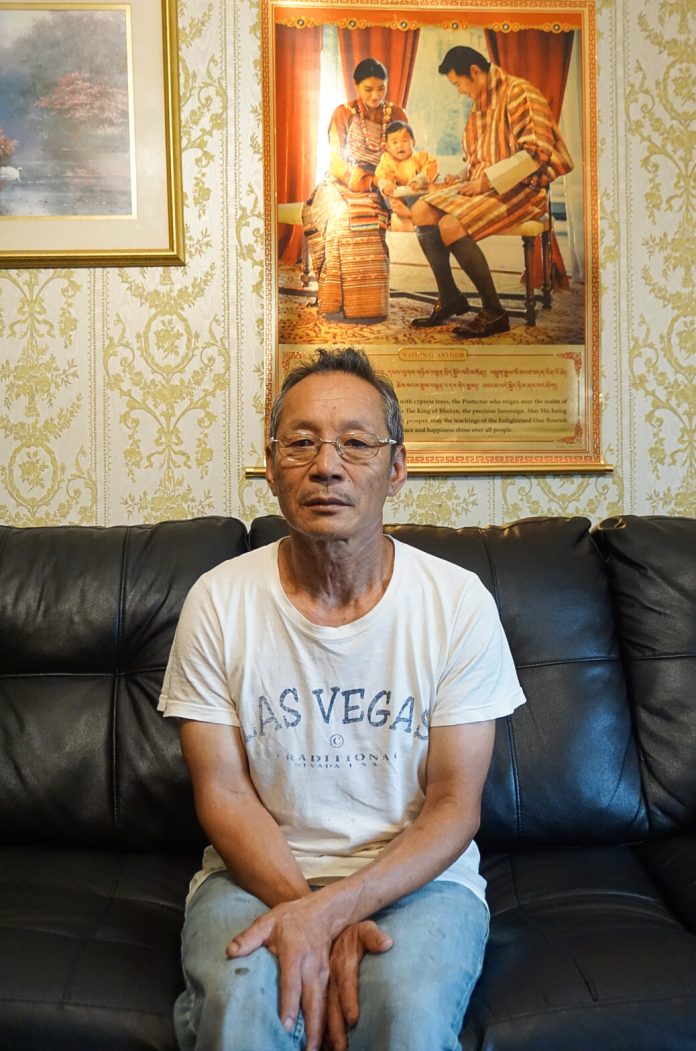“I was twenty-four and my wife was sixteen when we got married. My wife and I lived in the same village block called Patale in Bhutan’s Chirang district. Our houses were close to each other. I frequented her home and she mine, and so did our families. There was nothing special about our interactions — it was always platonic. This continued for the next two or three years. We never thought anything would change. One typical day the possibility of us getting married was brought forth to us. My mother died when I was only three-years-old. I didn’t have brothers or sisters. I grew up an orphan. After seeing my struggles, my now-in-laws suggested that I marry their daughter. Fellow villagers followed suit and encouraged me to get married. I wasn’t exactly interested in getting married. I enjoyed my lifestyle as a bachelor, but some of these advice came from my dearest friends and family. So I began reflecting and realized they were right. I would eventually need to get married. I began feeling like if I did not get married, I would face more challenges in future. That’s how I got married. It wasn’t a love marriage, nor did we have to marry in secret by eloping. We Rai(s) have our own set of rituals and customs, and weddings are always held according to the Rai traditions. Before the wedding, my uncle and I went to the home of my bride-to-be with a special collection of homemade alcoholic beverages to ask for her hand in marriage. We already had her parents’ informal approval so going to her home and asking for approval was just a formality to appease Rai customs. The wedding day transpired quite nicely. I went to her house with a large groom’s party, or what we call janti. When I saw her at the wedding, I suddenly realized I was trapped — ha-ha — it would’ve been awkward to back out then since I had already seen her and agreed to marry her. Once we got married, there was even more pressure to take care of her and our family. I was no longer on my own and had to consult her for everything. A year and a half into our marriage, my wife gave birth to our precious son. Sadly, he passed away. It was a difficult time. But now we have seven children, who have all grown up to be adults and some even have their own families.”
__
Birkha Rai, 60, is originally from Patale Gaun in Chirang, Bhutan and based in Hartford, Connecticut at the time when this story was compiled.
Story and Photo compilation by Susanna Pradhan for BNS.

